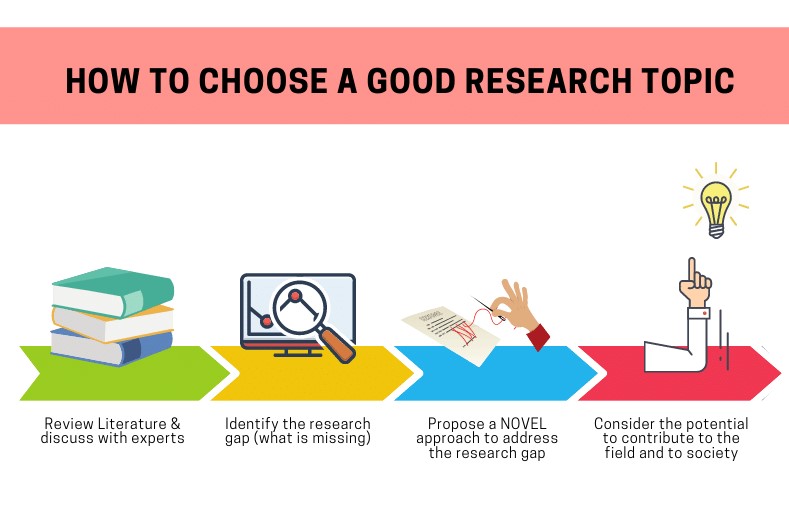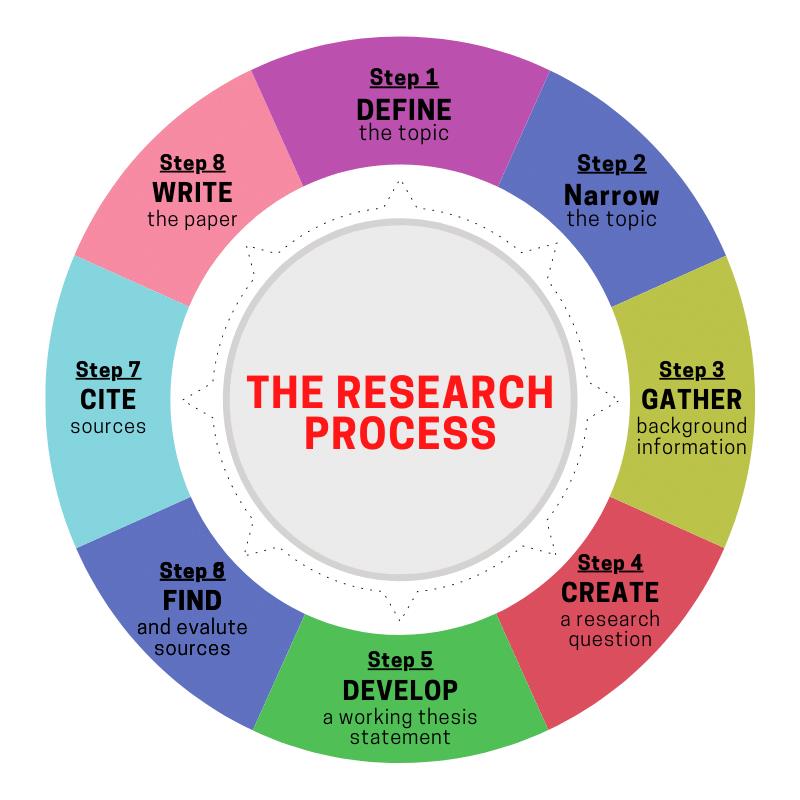A Doctor of Philosophy (PhD) is the highest university degree in the academic domain all around the world. So apart from strong academic knowledge, it takes a lot of courage, determination and mental strength to complete the degree successfully. According to the UGC report, over 50,000 research scholars enroll for PhD degrees across India every year but only 1/3rd of them are successful crossing the final line. Research says that one of the important reasons for failure and dropout is poor dissertation topic selection. So, the scholar should select the research topic meticulously.

The PhD Dissertation Topic Selection is the basis of the entire research work. So it is essential to select a good topic for the dissertation. But to be honest, there is no such thing as a good topic and a bad topic. It is judged purely based on the availability of previous research data, accessibility to the source and scope of the research work. So, this article clearly elaborates the structural framework for Doctoral Dissertation Topic Selection. The guidelines and tips enclosed in this article will assist you in choosing a Dissertation Topic for your PhD research work efficiently.
Don’t know where to start?
This is the first hurdle for a PhD Scholar and it is completely fine even if you’re facing the same situation. The only possible way to find an answer to this obstacle is by starting the process at some point. Ofcourse, you will make mistakes and face failures during the learning process but I can assure you that this is way better than sitting idle. Moreover, In the due course of the learning process, the scholar gets a broad perspective, clear idea and better understanding about the subject. This will eventually lead to the scholar to select a best dissertation topic for his/her research work.
Yes, Choosing a PhD Dissertation Topic is the first step of the research process. As discussed, this step is quite tedious and daunting for the research scholars. So, it is necessary to have a focused mind, clear vision and strong plan to be successful in their academic career. If the scholar is working independently without a mentor, scholars can utilize the PhD Topic Consultation Service on the online for guidance and feedback.

Framework to select a research topic for doctoral student
1. Brainstorm research topics in your field of interest
This is the first phase in selecting a research topic for your research work. In this phase, the research scholar brainstorms the general research topics of genuine interest to him/her. Generally, it takes 3 to 5 years to complete a phd degree so it is advisable to select a topic of scholar’s interest. It is really unwise to select topics neither arbitrarily nor the topics which you’re not genuinely interested in. Furthermore, always remember a good research bloom only from what the scholar is interested in. This phase is more oriented towards thinking, recalling, understanding and finding your area of interest. Here is a list of tips to dug out your suitable research topic:

2. Preliminary literature review:
Once the research scholar chooses a topic of his/her interest, Preliminary Literature Review is carried out to find the feasibility of the selected PhD dissertation topics & thesis ideas. This phase gives a clear-cut idea and bigger picture about the selected topic. In this phase, most of the scholars tend to deviate away from the selected topic and lose their track. So, it is advisable to do this task carefully with a clear mind. Moreover, the Selection of a research topic is purely an iterative process where the scholar should repeat the selection cycle for a few times to find a proper research topic. There are three factors to lookup in this phase.
- Accessibility and availability of sources:
These two factors play a vital role in developing good research work. So it is important for a scholar to check the availability of sources for his/her research work before starting the research process. On the other hand, accessibility to the available source has to be ensured to proceed forward with the select topic. If you feel that the collected information on the selected topic is insufficient, it is better to pick a new topic in the beginning stage itself.
- Narrow down your topic:
If the research topic is too broad, the scholar may find it difficult to complete the task in the right time. So the scholar should narrow down the topic and focus on a specific area for his/her research work. The scholar should also make sure that the selected research topic is quantitative, qualitative and manageable in the given timespan.
- Figure out the problem statements:
The scholar should figure out a problem statement for the selected topic or the existing gaps in the previous research works. The problem statement decides the weightage of the research dissertation work so it is advisable to seek your mentor’s guidance for finalizing the problem statement. Once the scholar decides his/her problem statement for the research work, the scholar should subsequently work on framing the research question for his/her problem statement.
3. Develop your research questions:
This phase is purely created to formulate research questions for the generated problem statements in the previous phase. The formulated research questions should be in such a way that it demands straight and specific answers. The scholar can also use the online dissertation topic selection service forums for Dissertation Topic Selection Guidance, Dissertation Topic Help and other services. Here is a list of guidelines to followed while developing a research question:
- Make sure that your question is valid and answerable.
- Ensure that your question is clear, simple and manageable.
- Ensure that your question is worth answering.
- Make sure that your question demands an answer about the missing gaps of previous research work.
- Devise a question in such a way that it demands an answer addressing the idea to overcome the listed problem statement.
- Don’t develop a hypothetical question.
4. Formulate your theory for the problem statement:
Formulating your ideas into a theory for the problem statement is the next phase in the selection of the research topic. In this step, the scholar should develop a theory which addresses all the research questions devised in the previous phase.
The PhD research problem statements are usually big and complex. So, the scholar cannot solve the problems unless he/she approaches it strategically. Here is a list of guidelines to be followed while approaching a problem:
- Break down the problem statement into smaller pieces
- Magnify and solve the smaller problems
- Integrate the solved piece and create a theory
While formulating the theories, the scholar should ensure the feasibility of the solution, novel nature and the originality of it. To confirm the originality of your idea, it is better to go for Plagiarism correction. In this section, the scholar should enclose the existing theories and the validated new theory to address the problem statement. It is necessary that the formulated new theory is feasible, practical and original to proceed further into the next phase.
5. Consult with your mentor:
This is the final phase where the scholar collectively presents the entire data about the selected topic to his/her mentor. Before Selecting a Topic, it is advisable to consult with your mentor or a professor who is experienced in your field of research. Moreover, your mentor might exactly know the advantages, disadvantages, feasibility and other facts & information about the selected topic which you’re unaware of. So, it is highly recommendable to seek dissertation topic selection assistance from your mentor.
Conclusion
As quoted by the famous American humorist Mark Twain, “good decisions come from experience. Experience comes from bad decisions,” similarly a good topic can be selected only out of experience and continuous iteration. This article conclusive illustrates the framework to select a research topic for doctoral students. I hope that the guidelines and tips attached in this article would help you in Choosing a PhD Dissertation Topic for your doctoral research work.
References
- ER Services. (2020). Preliminary Research Strategies. Retrieved July 25, 2020, from ER Services.
- Fleming, G. (2018). Choosing a Strong Research Topic Start smart with preliminary research.
- Gillingham, K. (2020). How to Establish a Research Topic. Retrieved July 25, 2020, from Wiki How.
- Gust, J. (2019). How to Choose the Right Research Topic in 5 Easy Steps. Retrieved July 25, 2020, from College Kaptor.
- Kelly, J. M. (2014). Flowchart: How To Find A Research Topic.
- MIT Libraries. (2020). Selecting a Research Topic: Overview. Retrieved July 25, 2020, from MIT Libraries website: https://libguides.mit.edu/select-topic
- ResearchArticles.com. (2019). Factors to Consider when Choosing a research Topic.
- Guidelines to Write a Research Proposal for Neurology Research Scholars - March 19, 2021
- How to Choose a PhD Dissertation Topic For Economic Research? List out the Criteria for Topic Selection - March 11, 2021
- Beginners Guide to Write a Research Proposal for a PhD in Computer Science - February 19, 2021
